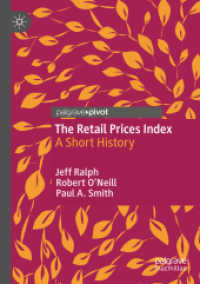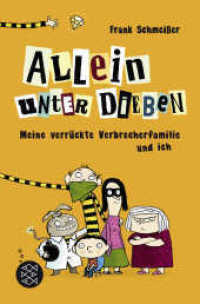- ホーム
- > 洋書
- > 英文書
- > Philosophy
Full Description
Drawing on a rich variety of premodern Indian texts across multiple traditions, genres, and languages, this collection explores how emotional experience is framed, evoked, and theorized in order to offer compelling insights into human subjectivity.
Rather than approaching emotion through the prism of Western theory, a team of leading scholars of Indian traditions showcases the literary texture, philosophical reflections, and theoretical paradigms that classical Indian sources provide in their own right. The focus is on how the texts themselves approach those dimensions of the human condition we may intuitively think of as being about emotion, without pre-judging what that might be. The result is a collection that reveals the range and diversity of phenomena that benefit from being gathered under the formal term "emotion", but which in fact open up what such theorisation, representation, and expression might contribute to a cross-cultural understanding of this term. In doing so, these chapters contribute to a cosmopolitan, comparative, and pluralistic conception of human experience.
Adopting a broad phenomenological methodology, this handbook reframes debates on emotion within classical Indian thought and is an invaluable resource for researchers and students seeking to understand the field beyond the Western tradition.
Contents
List of Contributors
Acknowledgments
Introduction, Maria Heim (Amherst College, USA), Chakravarthi Ram-Prasad (Lancaster University, USA) and Roy Tzohar (Tel Aviv University, Israel)
1. Grief, Tranquillity, and Santa Rasa in Ravisena's Padmapurana, Gregory Clines (Trinity University, USA)
2. Emotions in Visistadvaita Vedanta, Elisa Freschi (Austrian Academy of Sciences, Austria)
3. Joy as Medicine? Yogavasistha and Descartes on the Affective Sources of Disease, Ana Laura Funes Maderay (Eastern Connecticut State University, USA)
4. Some Analyses of Feeling, Maria Heim (Amherst College, USA)
5. Lament and the Work of Tears: Andromache, Sita and Yasodhara, Steven P. Hopkins (Swarthmore College, USA)
6. The Mind in Pain: The View from Buddhist Systematic and Narrative Thought, Sonam Kachru (University of Virginia, USA)
7. Transparent Smoke in the Pure Sky of Consciousness: Emotions and Liberation-While-Living in the Jivanmuktiviveka, James Madaio (Academy of Sciences of the Czech Republic, Czech Republic)
8. Gesture and Emotion in Tamil Saiva Devotional Poetry, Anne Monius (Harvard Divinity School, USA)
9. The Emotion that is Correlated with the Comic: Notes on Human Nature through Rasa Theory, Chakravarthi Ram-Prasad (Lancaster University, USA)
10. Is there a Cankam Way of Feeling? Body, Landscape, Voice and Affect in Old Tamil Poetry, Martha Selby (University of Texas at Austin, USA)
11. Wretched and Blessed: Emotional Praise in a Sanskrit Hymn from Kashmir, Hamsa Stainton (McGill University, Canada)
12. Savouring Rasa: Emotion, Judgement, and Phenomenal Content, Sthaneshwar Timalsina (San Diego State University, USA)
13. How Does it Feel to be on Your Own: Solitude (viveka) in Asvaghosa's Saundarananda, Roy Tzohar (Tel Aviv University, Israel)
Bibliography
Index








